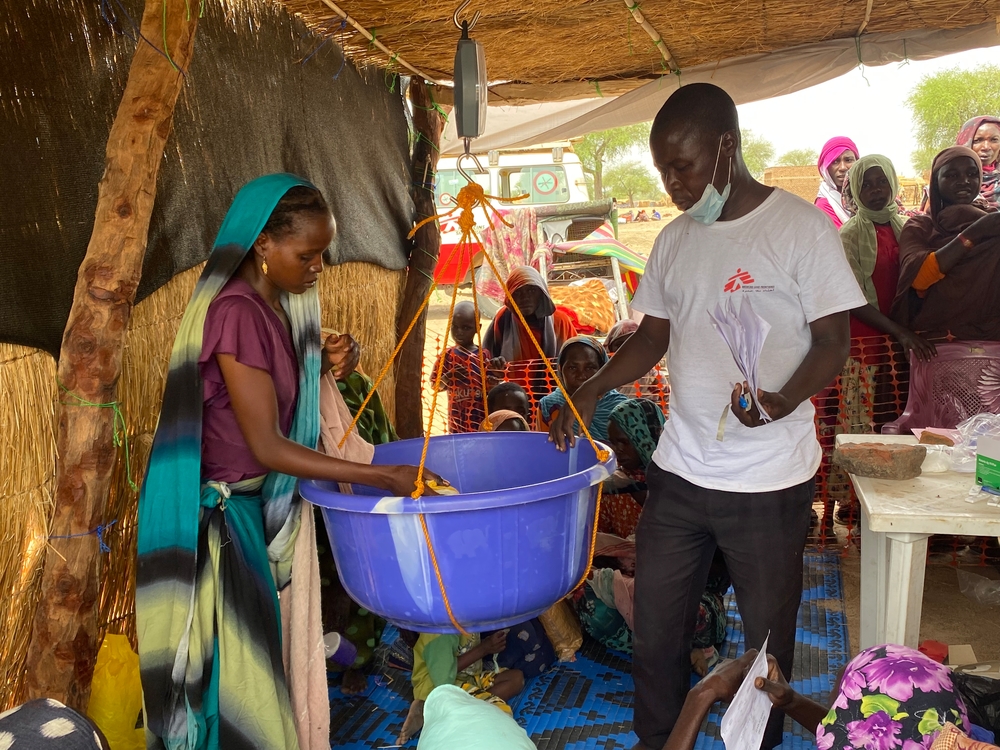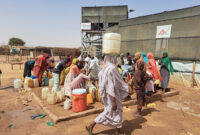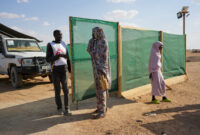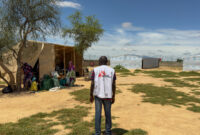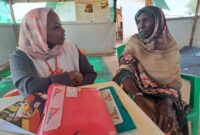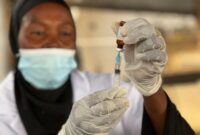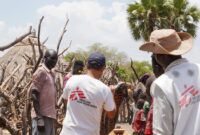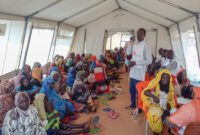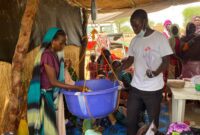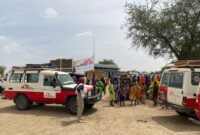Brother and Sister in Chad’s Andressa, on the border with Sudan
Neal Russell is a pediatric doctor and advisor based in London – who has been working with Doctors Without Borders/Médecins Sans Frontières (MSF) for 10 years. Following a recent visit to MSF’s project in Chad’s eastern region of Sila near the border with Sudan, Neal provides his account of the situation he witnessed there.
He must be about eight, maybe nine, sitting on the bench and holding his little sister as they wait in line between uncountable numbers of mothers holding their sick children. I’ll call him “Saleh” and her “Samiyah”*. His face is mixed with fear and determination for his sister to be seen. Earlier I saw him kiss her head when he thought nobody was looking. He loves her.
She is two, a little girl with platted hair, sat on her brother’s knee. He says their mother is at home. I think he means she is here in the refugee site, perhaps under a shelter made of plastic sheeting, or simply under a tree like other families we have seen. The father, if alive, is probably still in Sudan, where all the fighting is.
I quickly ask Saleh to tell me his sister’s health problem, knowing that this late in the day we won’t have time to see everyone before we have to leave the site for security reasons.
He talks about her diarrhea first, but you can see she is starving. Her hair has changed colour from lack of nutrients, and she’s exhausted, barely connected to her surroundings. I ask to see her arms, hardly wider than my thumbs, and I gently check her arm circumference with the special measuring tape we use to assess nutrition status. Samiyah’s result is “Red – Severe Acute Malnutrition”, and she’s well below the threshold.
We explain to Saleh that we will give him sachets of therapeutic food, a specially made mix of peanut paste and nutrients to treat malnutrition. We tell him that he must give her two sachets per day, and that we have enough to give him one week’s supply. Hopefully, I think, by that time we will be back here again with more. Hopefully the rains will not fill the waterways which could block the route to the site. Hopefully she will survive long enough to get the next ration.
This site needs to be evacuated. People have been living here for weeks, having escaped the fighting in Sudan. Now the seasonal rains have started here in Chad, the huge waterways (wadi) are filling. Soon everyone here will be trapped, with the fighting on one side and the rising waters blocking routes to safer sites on the other. Even worse, the wadi will prevent proper help from reaching anyone who remains. Everyone knows this, but help has not come for evacuation yet.
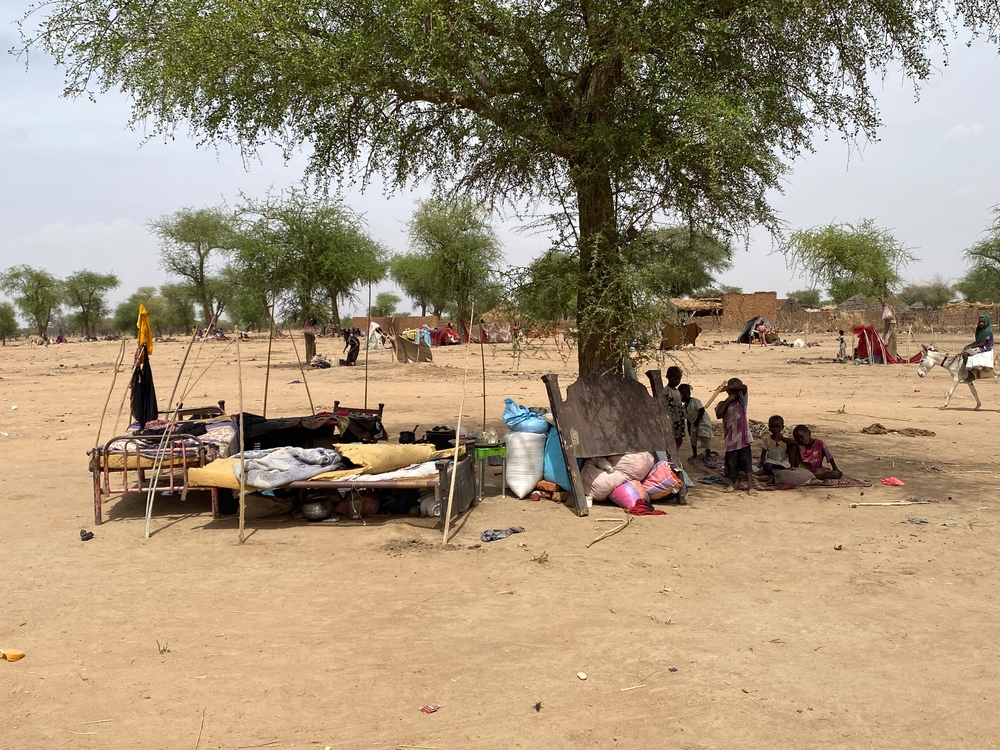
People say these refugees are not the ones the world is interested in. Humanitarian responses in Chad get little attention, and with that little funding. People say aid cuts are why an evacuation is late to come. There was only one food distribution, which we all know wasn’t enough. Samiyah proves the point, as do hundreds of other children like her. The same day we see a girl Saleh’s age drinking mud, trying to filter it with her T-shirt: there is no safe water here. We see children with measles and whooping cough; outbreaks have already started.
We leave the site in the afternoon to arrive at our base before dark, and to our horror we see the water level in the wadi has already risen, almost cutting off the path to and from the site. Looking out of the window of our Land Cruiser as we drive through, I can see that the water is already above the wheels. We are not sure how we will return next week. These people are trapped, they need food, they need clean water, and medicine. I hope we will see Saleh and Samiyah after they are evacuated, I hope they will get the next ration, but right now I am not sure how.
*Names have been changed
Note: The situation in eastern Chad remains very fluid, and the situation in Andressa has significantly evolved since the writing of this piece – as MSF received reports that the number of people in this site has dramatically reduced. Nevertheless, the humanitarian situation remains critical.
